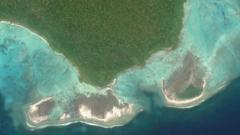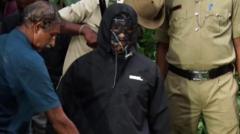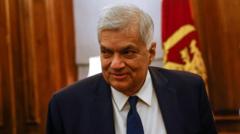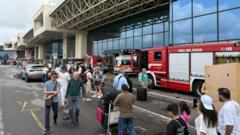The arrest of a U.S. tourist attempting to contact the Sentinelese tribe has raised alarm about the dangers posed by social media influencers to uncontacted indigenous peoples. Survival International warns that such threats could have devastating consequences for these vulnerable communities.
Social Media Influencers: A Growing Threat to Uncontacted Indigenous Tribes

Social Media Influencers: A Growing Threat to Uncontacted Indigenous Tribes
Concerns rise over the impact of social media influencers on isolated indigenous communities following a tourist's arrest on North Sentinel Island.
Social media influencers pose a significant and increasing threat to uncontacted indigenous tribes, according to Survival International, after a recent incident involving a U.S. tourist's illegal landing on North Sentinel Island. Mykhailo Viktorovych Polyakov, 24, was detained after allegedly attempting to contact the Sentinelese tribe, a group known for their isolation from the outside world, by landing on the restricted island and filming his interaction.
The U.S. government is currently monitoring the situation, as Indian authorities have charged Polyakov and remanded him in custody for further questioning. Reports indicate that he blew a whistle on the shore to attract the tribe's attention, leaving behind offerings such as a can of soda and a coconut during his brief stay. His arrest highlights the legal protections in place that prohibit both foreigners and Indians from approaching within three miles of the island to safeguard the Sentinelese.
Polyakov reportedly visited the Andaman and Nicobar region multiple times before, where he had previously attempted to reach the island using an inflatable kayak. His motivations for the visit appeared to be thrill-seeking, a claim underscored by ties to a social media presence that shares adventurous journeys, including a recent trip to Afghanistan.
Survival International has underscored the urgency of addressing the growing trend of influencers engaging in such reckless behavior, which they believe could exacerbate the threats already faced by uncontacted tribes. Jonathan Mazower, a spokesperson for the charity, noted that while logging and mining have been the primary threats to tribal communities, influencer culture introduces a new layer of danger, fueled by social media fascination with exploration of isolated peoples.
The Sentinelese are described as some of the most isolated indigenous people globally, residing on an island the size of Manhattan. Their population is estimated at around 200 individuals who live as hunter-gatherers, maintaining a life devoid of contact with outsiders. This incident emphasizes the necessity for stringent protections for indigenous tribes, aligning with the expectations defined under the UN's Indigenous and Tribal Peoples Convention and India's initiatives aimed at tribal welfare.
This is not the first instance of an outsider attempting contact with the Sentinelese; similar attempts have resulted in deadly consequences, including the 2018 case of American missionary John Allen Chau, who was killed by the tribe after landing on the same island. Such incidents reveal the critical importance of respecting the autonomy and safety of uncontacted peoples amidst modern challenges brought on by social media and tourism.




















